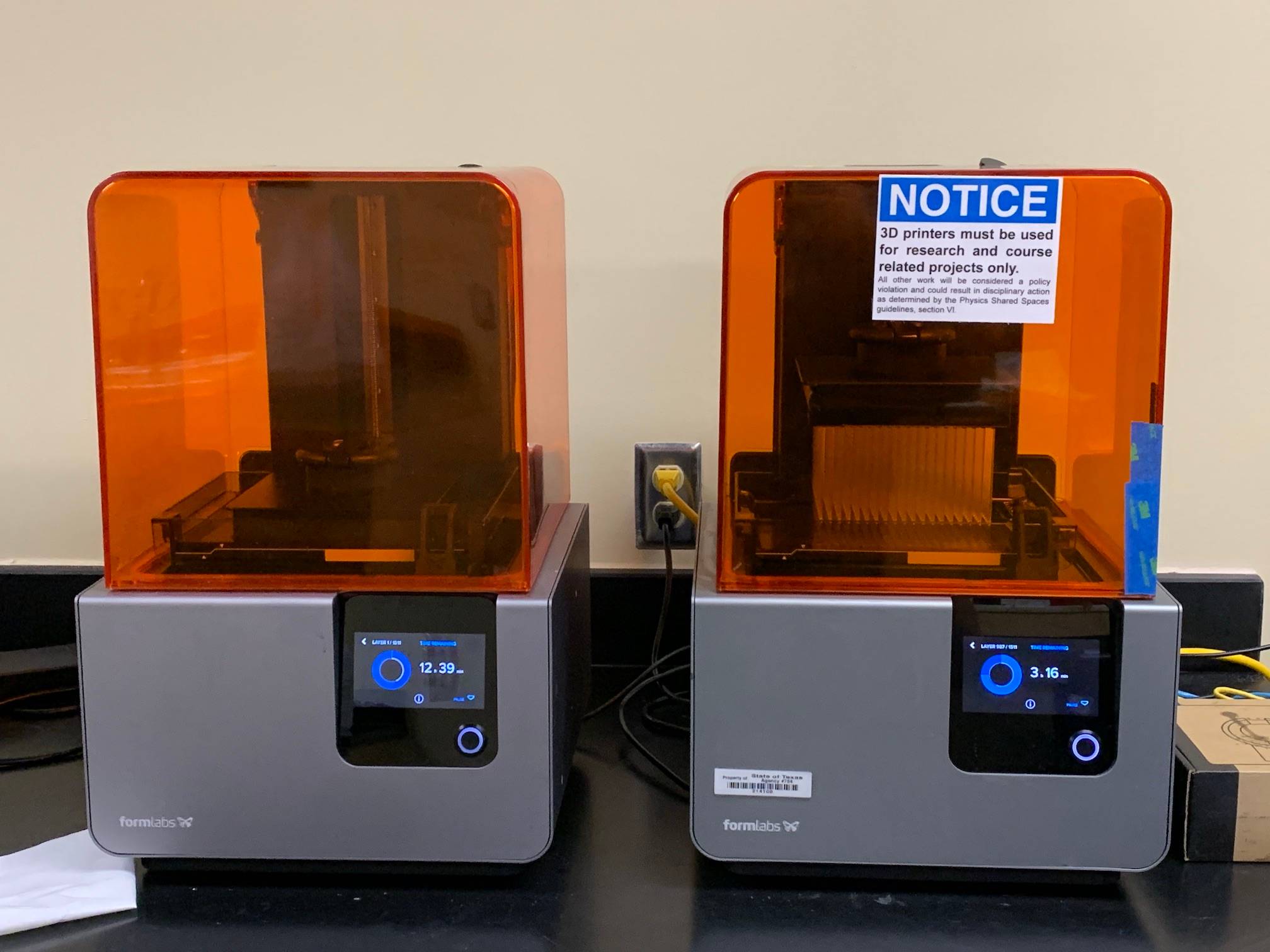Texas State devotes 3D printers to producing coronavirus testing swabs
Jayme Blaschke | May 26, 2020

Texas State University is putting idled 3D printers to work producing swabs for COVID-19 tests.
Texas State got involved in the project when the City of Austin approached the university to assist in the vetting of a 3D printed prototype of a swab that could be used for testing. Currently, the primary bottleneck to increase testing capabilities in Texas as well as the U.S. is the lack of testing swab availability. As the COVID-19 pandemic becomes more widespread, manufacturing has not been able to keep up with demand.
“The City of Austin had been planning how to ramp up testing so people can start going back to work. They noticed what was delaying testing was a lack of swabs—there is a huge shortage in swabs,” said Juan Gomez, Department of Physics. “We wanted to find a way to work together and try to cover that shortage.”
To that end, Texas State is also partnering with the College of Pharmacy at the University of Texas with the lofty goal of producing 50,000 test swabs a day for three months. Texas State has two SLA 3D printers—one in the Ingram School of Engineering, and the other in the Department of Physics—capable of producing medical grade testing swabs. Together, they can print 7,000 swabs a week.
“The biggest bottleneck Texas would face when ramping up testing was the shortage of testing swabs. We offered to help, and they accepted—7,000 is better than none,” Gomez said. “Everything we are printing is being sent to a company in Illinois. That company is doing all of the sterilization and packaging. We have the capability to do the sterilization here, but we don’t have the packaging material. They’re going to this company for sterilization, and they’re coming back to be used in Texas.”
One condition of Texas State’s participation is that the swabs produced must be used in Texas. Once they are packaged, they are delivered to the Governor's Strike Force to Open Texas for use throughout the state. The additional test kits will enable the state to better track and quantify COVID-19 infections in Texas, enabling a better understanding of public health trends and how to respond.
Share this article
For more information, contact University Communications:Jayme Blaschke, 512-245-2555 Sandy Pantlik, 512-245-2922 |